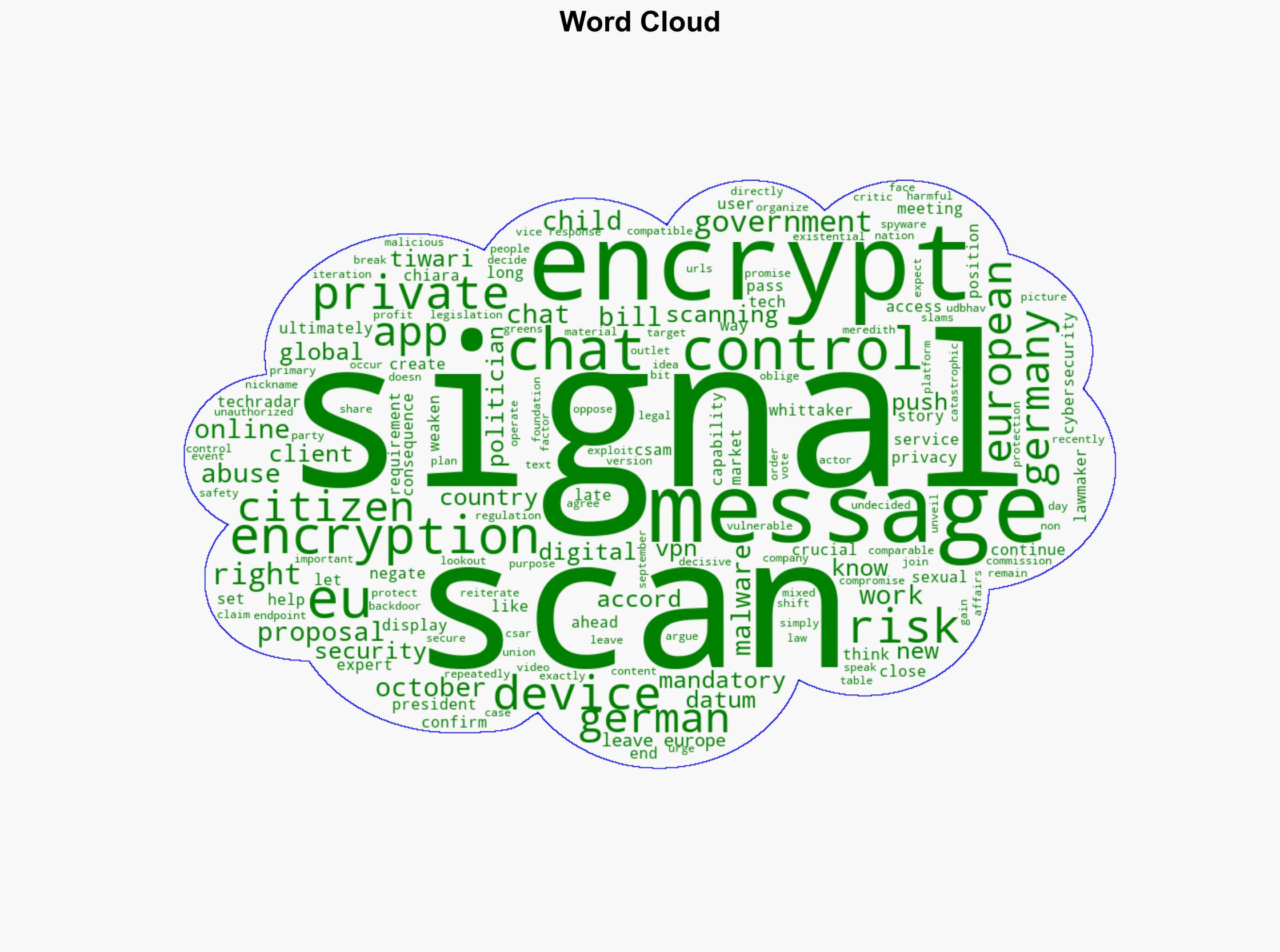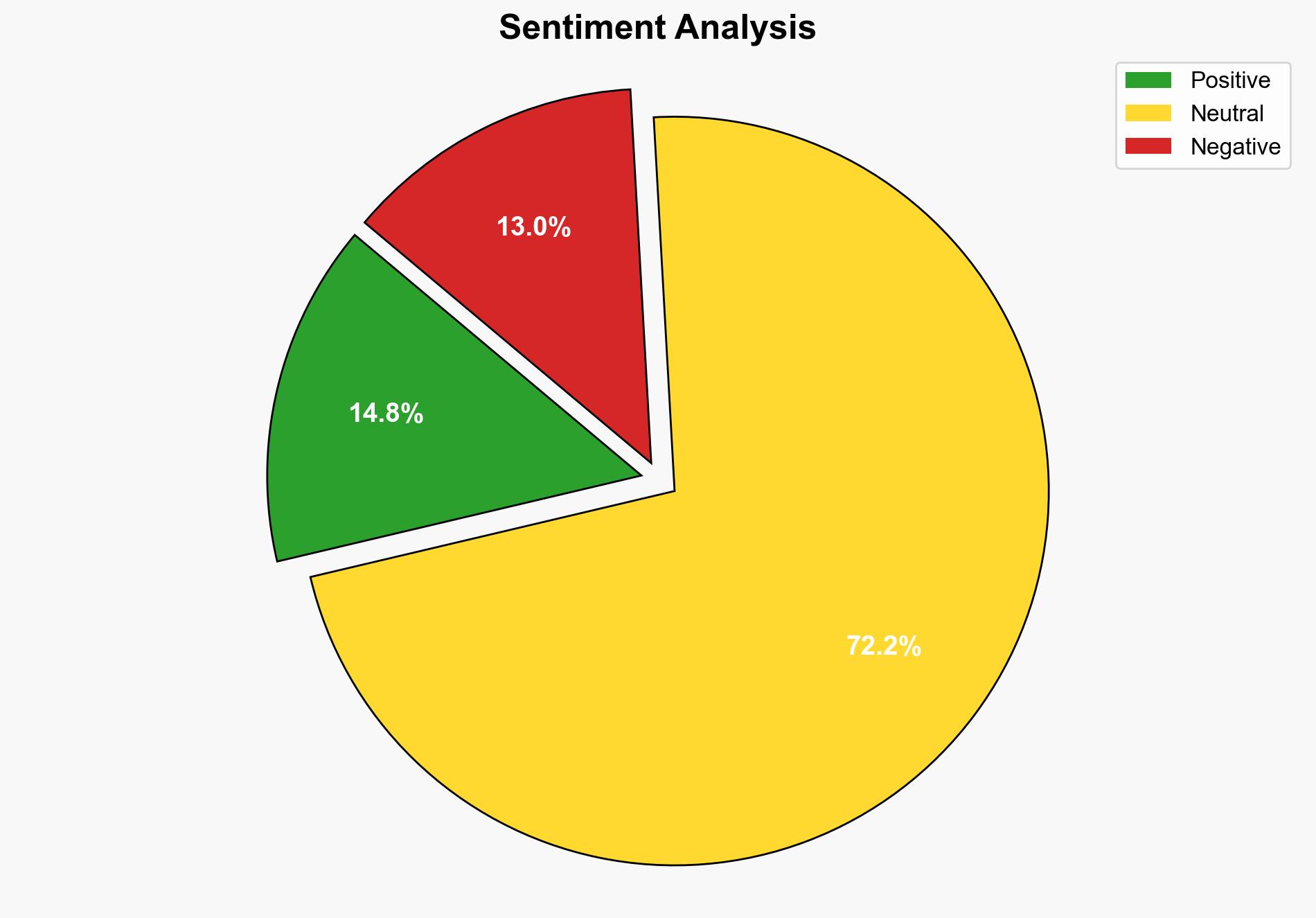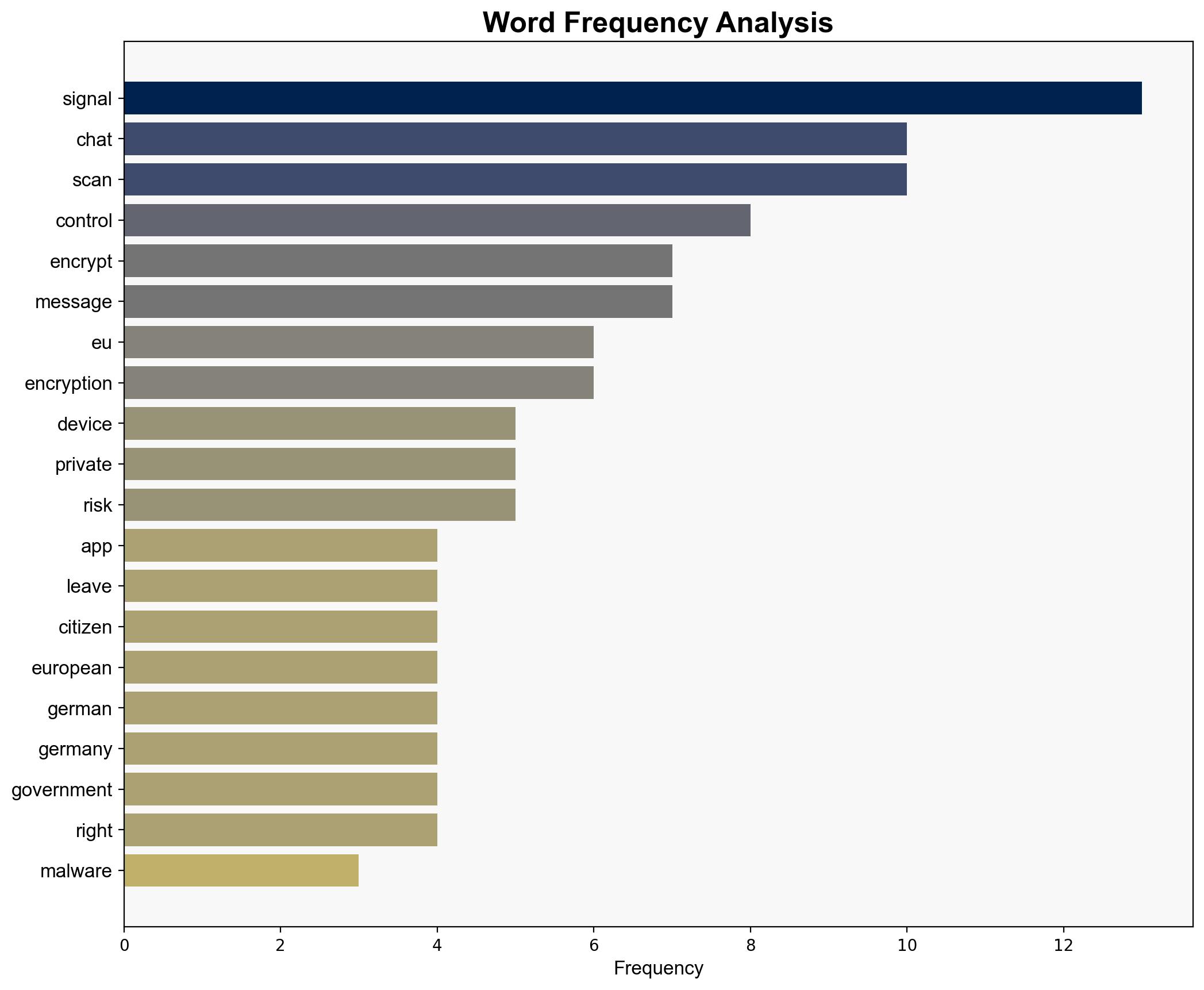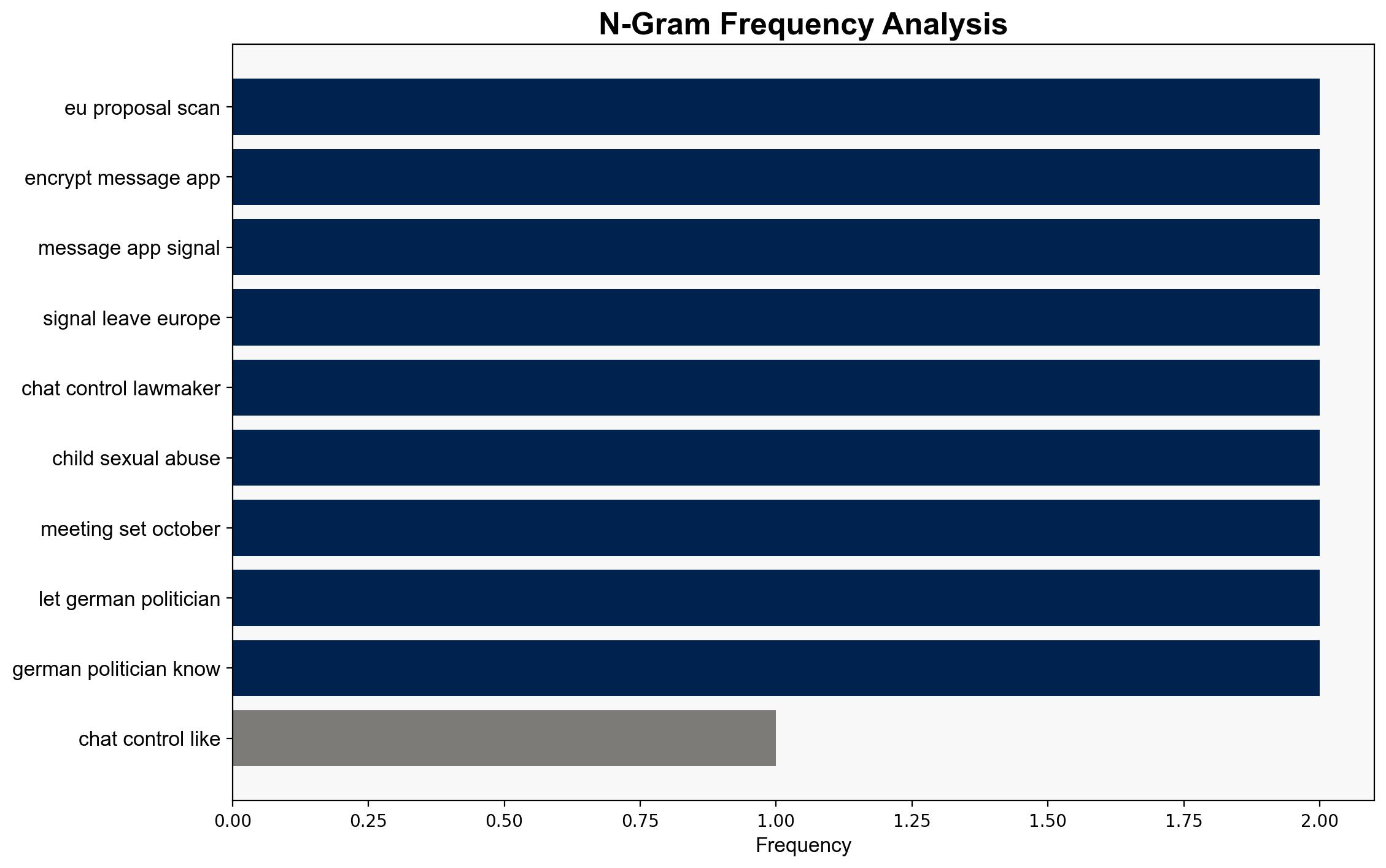Chat Control is like a malware on your device Signal slams the EU proposal to scan your private chats – TechRadar
Published on: 2025-10-06
Intelligence Report: Chat Control is like a malware on your device Signal slams the EU proposal to scan your private chats – TechRadar
1. BLUF (Bottom Line Up Front)
The most supported hypothesis is that the EU’s proposal to scan private chats poses significant risks to privacy and encryption integrity, potentially leading to a withdrawal of secure messaging services like Signal from the European market. Confidence level: High. Recommended action: Engage in diplomatic efforts to address privacy concerns and explore technological solutions that balance security with privacy.
2. Competing Hypotheses
1. **Hypothesis A**: The EU’s proposal to scan private chats is primarily aimed at enhancing child safety by detecting and preventing child sexual abuse material (CSAM), and it will be implemented with sufficient safeguards to protect user privacy.
2. **Hypothesis B**: The proposal represents a significant threat to privacy and encryption, akin to malware, and could lead to the withdrawal of secure messaging services from the EU market due to the requirement for backdoors or client-side scanning.
Using ACH 2.0, Hypothesis B is better supported by the evidence. Signal’s strong opposition, the comparison to malware, and the potential withdrawal from the market indicate significant privacy and security concerns.
3. Key Assumptions and Red Flags
– **Assumptions**: It is assumed that the EU will not implement adequate safeguards to protect privacy. It is also assumed that Signal and similar services will not find a technological compromise that satisfies both security and privacy needs.
– **Red Flags**: The lack of detailed information on how the EU plans to implement the scanning technology and protect against misuse is a significant red flag. Additionally, the mixed messages from Germany and other EU countries suggest potential internal disagreements that could affect the proposal’s implementation.
4. Implications and Strategic Risks
The proposal could lead to a significant reduction in the availability of secure communication tools within the EU, potentially increasing vulnerability to cyber threats. It may also set a precedent for other regions, leading to a global erosion of privacy standards. The economic impact on tech companies operating in the EU could be substantial, and there is a risk of increased public distrust in government surveillance measures.
5. Recommendations and Outlook
- Engage in dialogue with EU policymakers to advocate for privacy-preserving technologies that achieve child safety goals without compromising encryption.
- Monitor developments in Germany and other key EU nations to anticipate shifts in policy positions.
- Scenario Projections:
- **Best Case**: The EU adopts a balanced approach that satisfies both privacy advocates and child safety requirements, maintaining the availability of secure messaging services.
- **Worst Case**: The proposal is implemented without sufficient safeguards, leading to the withdrawal of major secure messaging services and a loss of public trust.
- **Most Likely**: Continued negotiations result in a compromise that partially addresses privacy concerns but still leads to some market exits.
6. Key Individuals and Entities
– Udbhav Tiwari
– Meredith Whittaker
– Signal Foundation
– European Commission
– German government
7. Thematic Tags
national security threats, cybersecurity, counter-terrorism, regional focus





